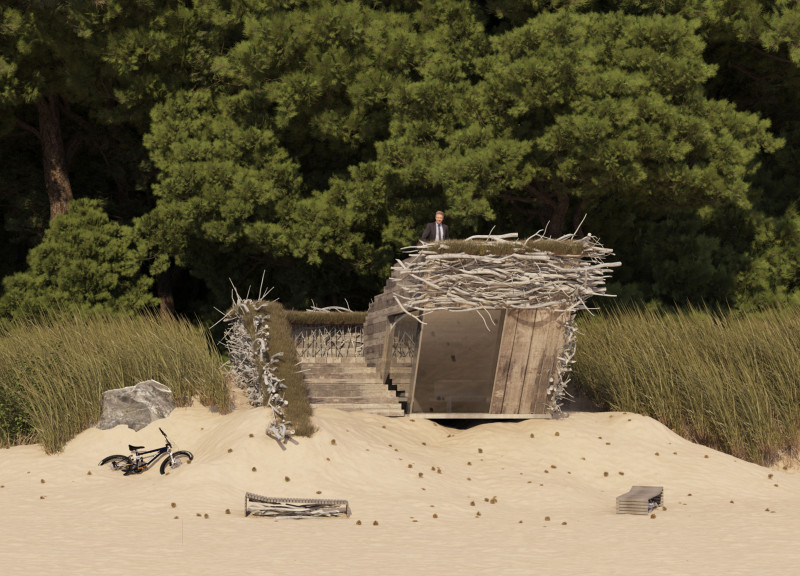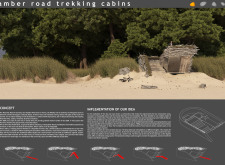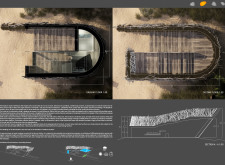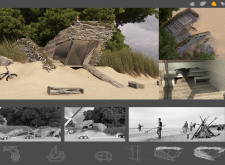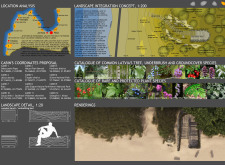5 key facts about this project
### Project Overview
The Amber Road Trekking Cabins are located in Latvia, a region characterized by its diverse natural landscapes, including forests and coastal areas. The project aims to provide outdoor accommodations that minimize environmental impact while encouraging community participation in the construction process. Drawing inspiration from renowned European trekking routes, the cabins are designed to enhance cultural interactions and promote outdoor activities for both locals and visitors, fostering a deeper appreciation of the surrounding environment.
### Design Integration and Community Engagement
The architectural design prioritizes user experience and environmental consciousness. Each cabin allows for individual contributions of materials, such as driftwood, creating a sense of ownership that strengthens community ties. The structural elements incorporate locally sourced timber and steel, ensuring durability while respecting ecological principles. The layout features open spaces that facilitate airflow and natural lighting, enhancing the overall ambiance. Accessible design elements, such as ramps and staircases, promote inclusivity for a wide range of users.
### Environmental and Contextual Considerations
Informed by a catalog of native Latvian plants, the landscaping integrates local flora to promote biodiversity and support wildlife. The cabins are strategically positioned to blend harmoniously with the natural terrain, minimizing ecological disturbance. The project's commitment to sustainability is reflected in its construction methods and material choices, emphasizing the use of local resources to reduce carbon footprints. The design also includes multifunctional spaces that adapt to user needs, reinforcing the connection between occupants and the natural environment.


